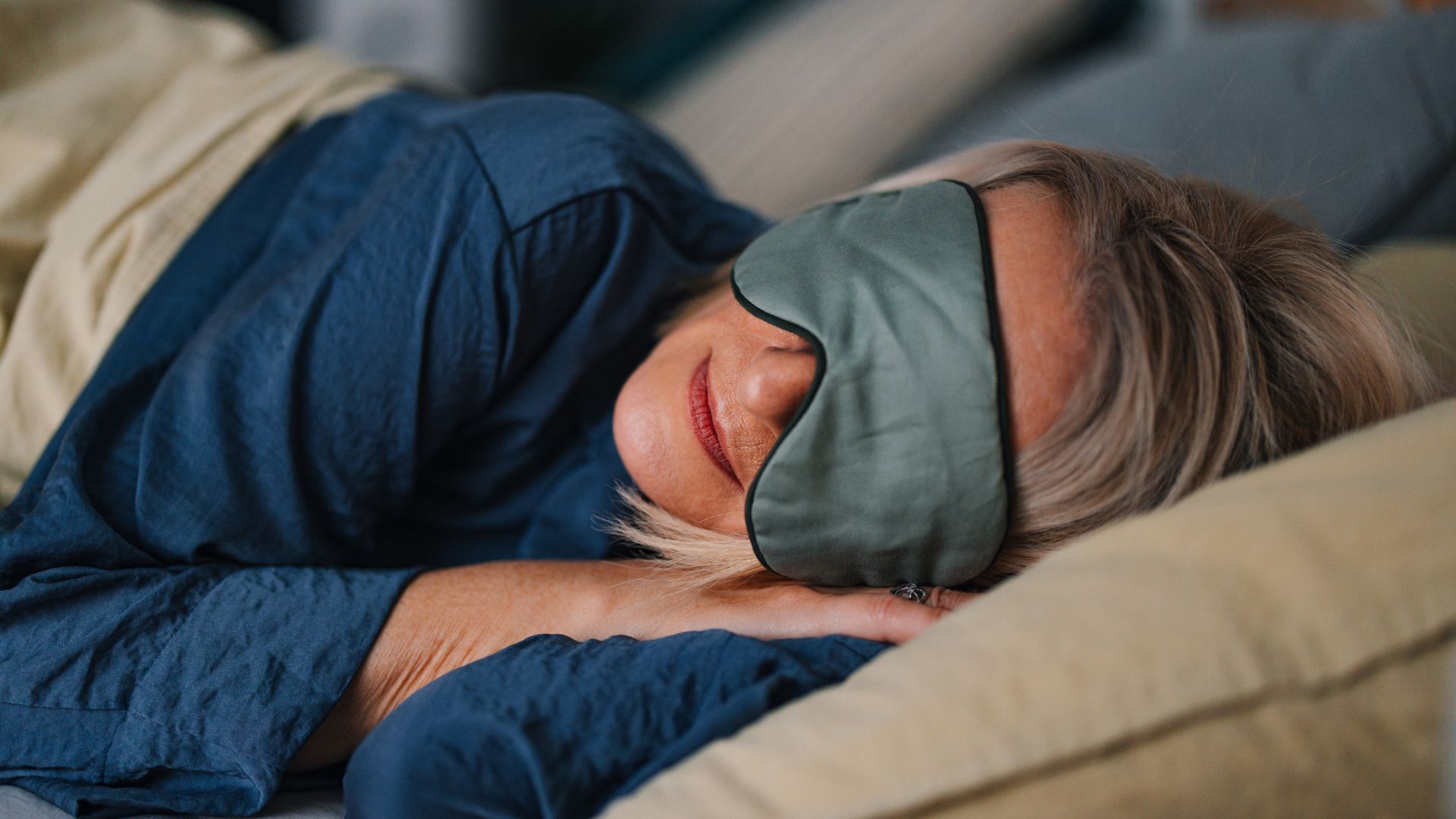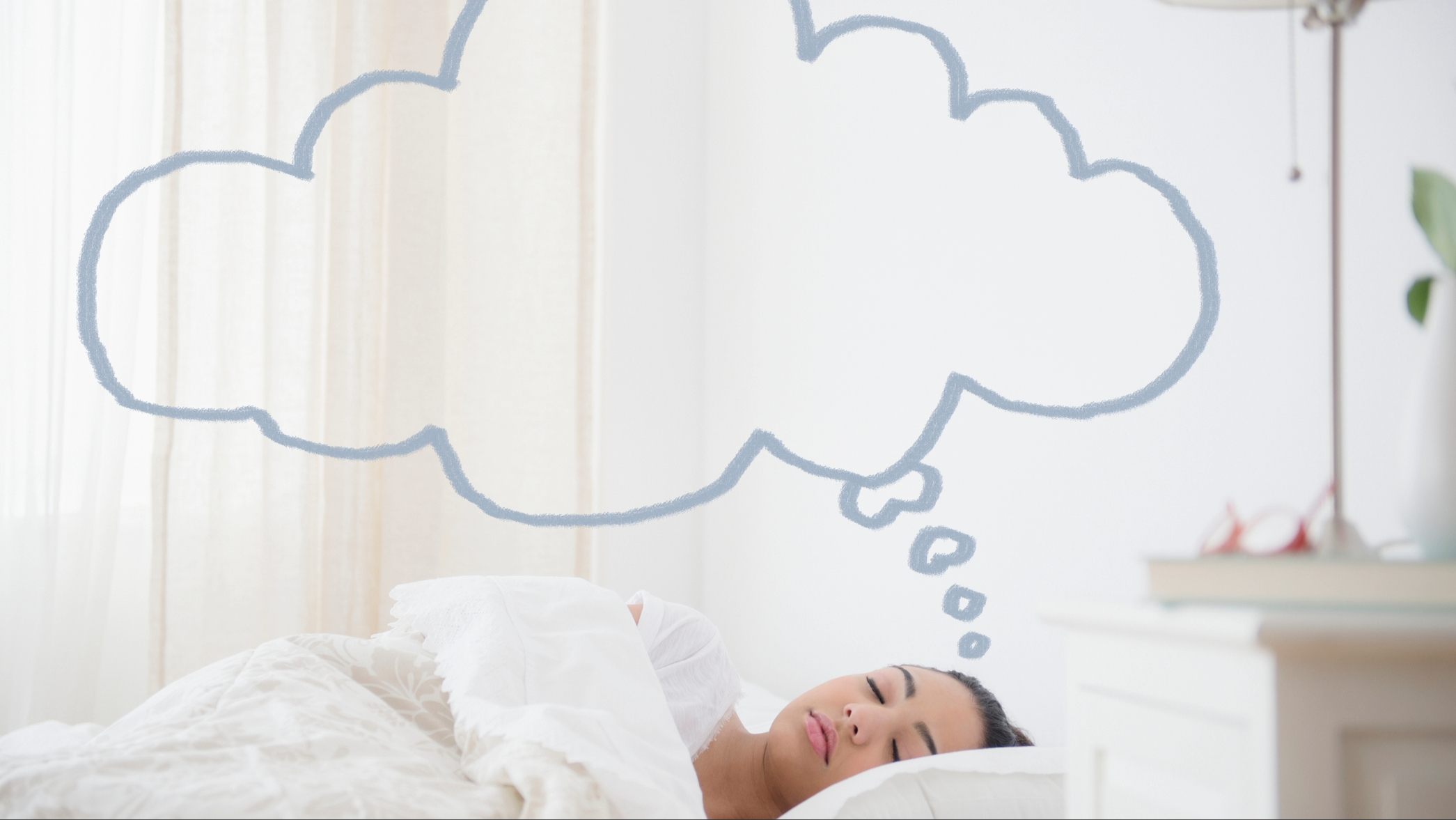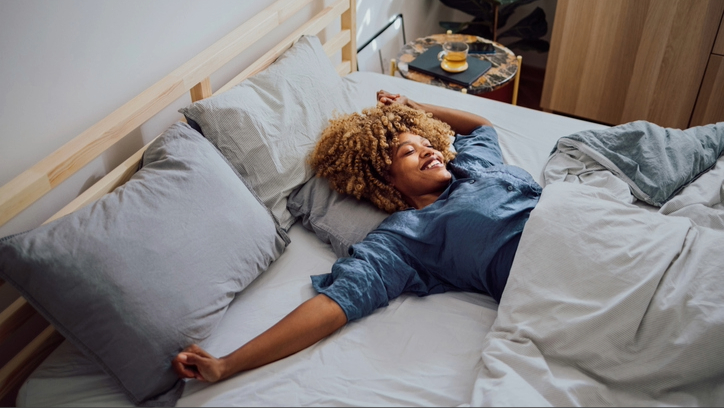How to get more REM sleep, according to a sleep specialist
Getting more REM sleep means feeling more rested

There are tell-tale signs when you don’t get enough REM sleep.
It’s the fourth stage of sleep and it’s crucial for processing your daily experiences and banking shorter and longer-term memories. If feeling groggy most mornings or being prone to colds sounds familiar, improving your REM sleep quota could make all the difference.
Also known as dream sleep, as it’s when we tend to dream, REM sleep is a crucial stage of a good night’s rest that also gets us ready for waking easier. So, if you’ve had a broken or restless sleep, this key stage may have been disrupted, making waking and bouncing straight out of bed much more difficult.
So how can you get more sleep? We asked Dr Deborah Lee, a GP with a special interest in sleep from the Dr Fox Online Pharmacy to tell us more about this essential sleep stage including how much we need, how to tell when we’re not getting enough, and easy ways we can get more REM sleep.
What is REM sleep?
When you’re in a period of REM sleep, your eyes will rapidly move from side to side and that’s where the name REM (short for rapid eye movement) comes from.
This is because when we fall asleep, our bodies release a hormone that paralyses us to prevent us from acting out our dreams. However, our eye muscles are connected to a different system from the rest of our muscles, meaning only our eyes can move during this stage of sleep.
As part of a full night’s rest, we cycle through four stages of sleep several times. This sleep cycle includes three stages of non-REM sleep and one stage of REM (dream) sleep. Each cycle takes around 90 to 120 minutes and with each new one, we gradually spend increasing amounts of time in REM sleep and less in deep sleep.
Sign up to get the BEST of Tom's Guide direct to your inbox.
Get instant access to breaking news, the hottest reviews, great deals and helpful tips.

Initially, periods of REM sleep last around ten minutes and gradually increase up to an hour.
“REM sleep usually occurs 60-90 minutes after falling asleep and in the latter stages of the sleep cycle,” Dr Lee explains. “While in REM sleep, your muscles are totally relaxed but at the same time, your heart rate and breathing rate quicken. In contrast to the slow waves of deep sleep, during REM sleep, your brain waves are similar to those when you are awake as your brain is more active.”
How to get more REM sleep
REM sleep is essential for your health and so is ensuring you get enough of it. Here’s how to get more.
1. Set a sleep schedule (and stick to it)
Try to wake up and go to bed at the same time each day as this will help to regulate your sleep/wake cycle, and it’ll also help you drift off more easily at night. As most REM sleep happens towards the end of the night, improving your total sleep will help you to naturally get more REM sleep.
“Aim for 7 hours of sleep per night and only use your bed for sleep and sex,” adds Dr Lee. “Your brain needs to know when you get into bed that it is time for sleep.” If you’re struggling to reset your sleep cycle, read our ways to quickly fix your sleep schedule.
2. Cut back on caffeine and alcohol
Caffeine can affect your ability to sleep well as it can block brain chemicals such as the hormone melatonin which promotes sleep. Dr Lee advises avoiding caffeine for at least six to eight hours before bedtime.
Alcohol might help you to initially drop off but it can also suppress REM sleep. If you’re on a night out but still want to sleep well, Dr Lee advises avoiding alcohol for at least four hours before you’re planning on going to bed.

3. Establish a wind down routine
Creating a relaxing wind down routine can further help to improve your ability to sleep well and get more REM sleep. Opting for a restorative yoga routine before bed could be a great way to unwind. As could listening to gentle, instrumental music or taking a warm bath or shower just before bedtime.
Reading is another great way to unwind, but be cautious of doing it via a phone or tablet as the blue light that’s emitted from these devices can interfere with your sleep.
4. Staying active helps
Being active during the day is not just good for your health and wellbeing, it’s also great for helping you to rest well. Research has shown that regular exercise increases the amount of deep, restorative sleep you get.
If you’re someone who likes to exercise in the morning, you’re already onto something that’s benefitting your sleep. That’s because getting out into natural light helps to set your body’s sleep/wake cycle, resulting in more restful sleep means and therefore, more REM sleep.
5. Make your bedroom a sleep haven
There are ideal conditions for creating a sleep haven in your bedroom and they’re quite easy to implement. Firstly, make sure your bedroom is cool and dark. Secondly, switch to soft, low lighting in the evenings and in your bedroom. If possible, also try to minimise any external noise by closing any windows that may still be open, for example. And thirdly, make sure your bed including your mattress is comfortable and supportive.
Our guide to the best mattresses will help if you’re looking to refresh your bedroom set up and ensure you have an optimal environment for a good night’s rest that’ll also provide a healthy dose of REM sleep.

Why is REM sleep important?
Rapid eye movement sleep is important as it stimulates an area of your brain known as the amygdala. It’s associated with learning, emotional processing, dream content and memory consolidation. The amygdala is highly active during REM sleep as it gets to work repairing and resetting the brain, processing your emotional experiences and transferring short-term memories into longer-term ones.
What happens if you don’t get enough REM sleep?
If you don’t get enough REM sleep, you could quickly experience some initial tell-tale signs. These include feeling groggy in the morning, and feeling irritable and hungrier than usual. You might also find it more difficult to concentrate and cope with your emotions. Some people also find they are more forgetful when they haven’t had enough REM sleep.
“Your immune health can also be affected and you may be more susceptible to minor illnesses such as cold, coughs and flu,” Dr Lee advises.
Although more research is needed to better understand the effects of REM sleep deprivation, initial studies suggest regularly not getting enough REM sleep can interfere with memory formation. It’s also believed that it can disrupt the brain’s ability to repair and reset.
Research has discovered there’s also a potential link between getting less REM sleep and having an increased risk of developing dementia.

Julie writes about health, wellbeing and medical issues for a wide range of titles including Tom’s Guide, TechRadar, Be Healthy, Top Sante, Doctors.net.uk and many more. She is endlessly curious and loves writing about health as there’s always something new to find out more about. She’s also a member of the NUJ, Guild of Health Writers and Medical Journalists’ Association.
